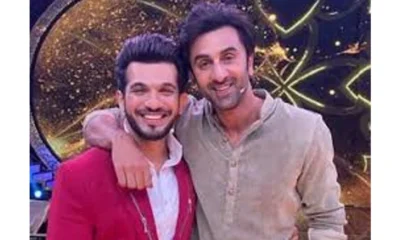Entertainment
Brahmastra: Ranbir Kapoor-Alia Bhatt starrer to release on OTT soon, check date and time here
Brahmastra Part One: Shiva is all set to premiere on the OTT platform, Disney+Hostar.

Entertainment
Border 2 box office collection day 12 crosses Rs 286 crore, eyes Rs 300 crore milestone
Border 2 box office collection reaches Rs 286.75 crore after 12 days, putting the Sunny Deol-led film close to the Rs 300 crore milestone.
Entertainment
Why Dhurandhar on Netflix runs shorter than its original theatrical cut
Dhurandhar’s Netflix release sparked confusion over its shorter runtime. The difference is linked to muted dialogue and an updated theatrical cut.
Entertainment
Border 2 box office collection day 1 crosses Rs 30 crore
Border 2 opens to Rs 30 crore on day one, becoming the biggest opener for Varun Dhawan, Ahan Shetty and Diljit Dosanjh.
-

 Latest world news23 hours ago
Latest world news23 hours agoTrump says tariffs will replace income tax, criticises Supreme Court setback in key address
-

 Latest world news23 hours ago
Latest world news23 hours agoTrump repeats claim of averting India-Pakistan nuclear war during Operation Sindoor
-

 Latest world news23 hours ago
Latest world news23 hours agoPM Modi to begin two-day Israel visit, defence and trade in focus
-

 India News23 hours ago
India News23 hours agoShashi Tharoor questions Centre over Kerala name change to Keralam
-

 India News14 hours ago
India News14 hours agoMK Stalin predicts frequent PM Modi visits to Tamil Nadu before assembly election
-

 Latest world news14 hours ago
Latest world news14 hours agoIndia eyes Rs 8,000 crore mid-air refuelling aircraft deal as PM Modi begins Israel visit















